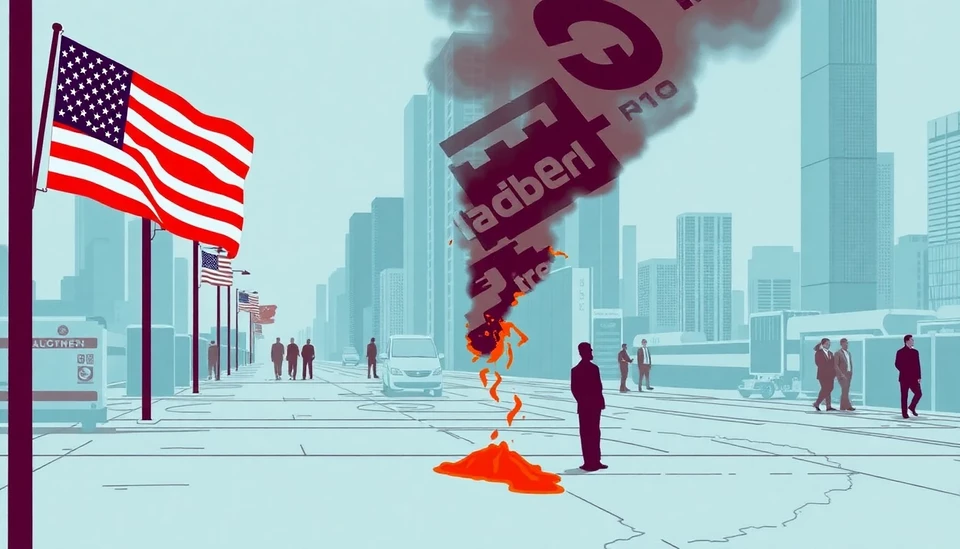
In a significant escalation of the ongoing trade war, former President Donald Trump has reimposed tariffs on imports from Canada, Mexico, and China, marking a new chapter in the complicated trade relationships between the United States and its key trading partners. This decision has raised concerns over potential repercussions not just for the involved countries but also for global trade stability.
The tariffs, which echo Trump's previous protectionist policies aimed at safeguarding American industries, specifically target various goods, including steel and aluminum. The justification provided by Trump’s administration highlights national security concerns and aims to bolster local manufacturing in the face of perceived unfair competition from abroad.
Trade experts have sounded alarms over the potential fallout from these renewed tariffs. Analysts predict that not only will U.S. consumers face increased prices on impacted goods, but these tariffs could also provoke retaliatory measures from Canada, Mexico, and China, further exacerbating tensions. Such actions could lead to a cyclical escalation of tariffs, further taxing the economy and complicating international relations.
Canada and Mexico have already signaled their intention to respond in kind. Canadian officials are preparing to introduce counter-tariffs on U.S. products. Mexican government representatives have expressed similar sentiments, stating that they are evaluating their trade options in light of the newly imposed tariffs. Experts warn that these developments could revert the progress made under the United States-Mexico-Canada Agreement (USMCA), a trade agreement intended to enhance trade relations between the three nations.
On the other side of the Pacific, China's reaction has been notably swift. The Chinese government has issued sharp critiques of the tariff measures, labeling them as a violation of international trade norms. In a statement, a Chinese spokesperson emphasized their commitment to defending its economic interests, hinting at potential retaliatory tariffs on U.S. goods.
As the global economic environment remains precarious, further complications arise with the potential for these tariffs to ignite widespread inflation. Economists warn that as prices rise due to increased tariffs, the purchasing power of American consumers could diminish, leading to a slowdown in domestic economic activity. With inflation already a pressing concern, this development might create an additional burden on households.
Market reactions to these announcements have been mixed. Stock markets experienced initial volatility as investors reacted to the uncertainty surrounding trade policies. Futures in major industries, particularly those impacted directly by steel and aluminum tariffs, have shown significant fluctuations, underlining the market's sensitivity to trade tensions.
The Biden administration, which has been cautiously navigating these geopolitical complexities, faces challenges in addressing the renewed tariffs while balancing domestic political pressures and international alliances. With upcoming elections, Republican responses to these tariffs might complicate negotiations, as party lines on trade continue to diverge.
As the situation develops, all eyes will be on how these tariffs affect global trade dynamics moving forward. Analysts will be closely monitoring trade volumes, pricing trends, and international diplomatic responses over the coming months as the ripple effects of this decision unfold. The long-term impacts on U.S. competitiveness and economic stability remain to be seen, setting a critical stage for future negotiations in global trade.
In summary, Trump's reintroduction of tariffs on Canada, Mexico, and China represents a profound shift in American trade policy, with potential ramifications that extend well beyond national borders. Stakeholders in the global economy will need to brace for the potential fallout, as the ramifications of these tariffs could reshape trade relationships and economic landscapes for years to come.
#TradeWar #TrumpTariffs #Canada #Mexico #China #USMCA #Economy #Tariffs #GlobalTrade
Author: Laura Mitchell




